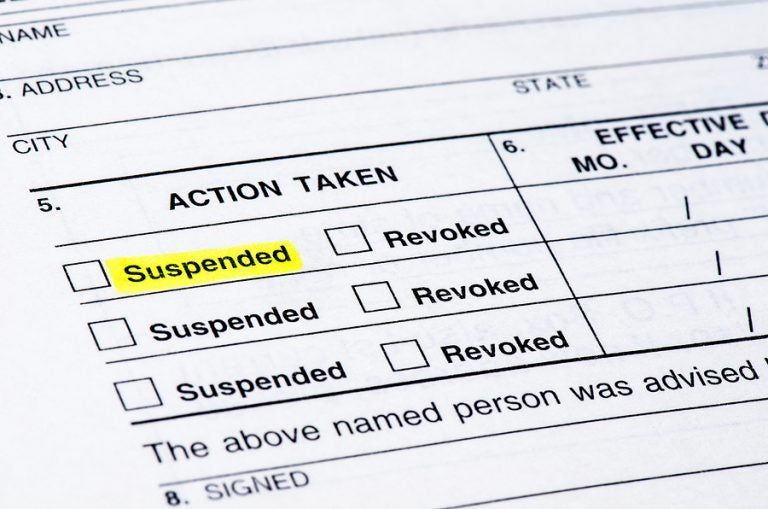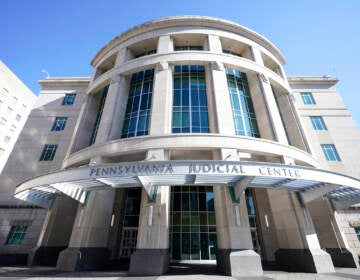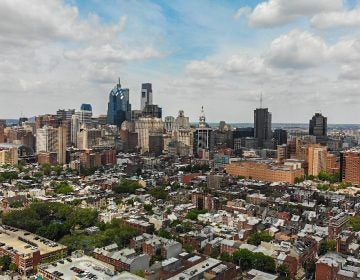The poverty penalty: Should states suspend driver’s licenses for court scofflaws?

A form from the DMV suspending a driver's license. (File photo from Big Stock)
When it comes to court debt, most states — including Pennsylvania, Delaware, and New Jersey — will suspend your driver’s license until you pay up.
But that strategy, intended to stymie scofflaws, instead “arbitrarily and unapologetically equates poverty with defiance,” trapping poor people in a “perpetual state of punishment,” according to one advocacy group that is calling on lawmakers to reform the system.
“Driver’s license suspension for defaulting on court debt is counterproductive. It’s a vicious cycle: People can’t afford to pay, so we suspend their licenses. Now they can’t drive legally to work, so they lose their jobs or they can’t find jobs, and then that makes them even less likely to pay,” said attorney Angela Ciolfi, director of litigation and advocacy for the Virginia-based Legal Aid Justice Center.
“More fundamentally, it’s unfair. Enforcing debts against people who can’t afford to pay puts them in a perpetual state of punishment, especially compared to wealthier people who can just write a check and be back in good standing.”

Ciolfi’s center studied “license-for-payment” systems across the country and found that 43 states — including Pennsylvania, Delaware, and New Jersey — and the District of Columbia force delinquent defendants to pay court fines and fees by yanking their driver’s licenses, often indefinitely. Only four states — Louisiana, Minnesota, New Hampshire, and Oklahoma — require a determination of the person’s ability to pay. In Pennsylvania and Delaware, the suspension is mandatory, while it’s discretionary in New Jersey, according to the center.
In 15 states, all court debt is considered worthy of license suspension, while 28 states (including Pennsylvania) and the District of Columbia suspend licenses only for traffic court nonpayment.
The center compiled its findings in a recent 20-page report, which Ciolfi co-authored, called “Driven By Dollars.”
“It’s time to rethink a system that affects millions of people across the country whose licenses are suspended. If you bear in mind that taking away someone’s driver’s license punishes not only the driver, but the driver’s family, it’s a true national crisis,” Ciolfi said.
She added: “Driver’s license suspension is just one of the ways that a system that is driven by dollars penalizes people in poverty. When you have a system that is so dependent on user fees and revenues from people who come before the courts, you’re going to find all sorts of perverse incentives that penalize low-income people, from civil asset forfeiture to driver’s license suspension to cash bail.”
The federal Department of Justice helped focus outrage nationally on such issues after it found, while investigating the controversial 2014 police-involved shooting of Michael Brown in Ferguson, Missouri, and resulting unrest there, that Ferguson police prioritized revenue-generating over public safety. In a follow-up missive in March 2016, two department leaders warned states and cities to “avoid suspending driver’s licenses as a debt collection tool, reserving suspension for cases in which it would increase public safety.”
Since then, the ACLU and and other civil-liberties advocates have challenged license-for-payment systems in several states as unconstitutional. And some states are reconsidering the strategy. In California, for example, where nearly a half-million people had their licenses suspended for failing to pay fines or missing court appearances, lawmakers agreed this year to end the practice.
The practice also concerns Larry Krasner, Philadelphia’s next district attorney, whose spokesman Ben Waxman said: “Generally, DA-elect Krasner is very concerned about punitive measures like suspending someone’s driver’s license because they are unable to pay a fine or fee. This disproportionality impacts poor people in a way that is often counterproductive. There are other ways to hold people accountable without taking away their ability to get to work, pick up their kids for child care, or perform countless other necessary tasks that require a license.”
One key to change is requiring courts to consider a defendant’s ability to pay before setting or enforcing fines and fees, Ciolfi said. Alternatives could include community service, job-skills training and other restorative justice programs, she added.
“We can think of all kinds of ways to coerce people into paying money that they don’t have; we can shake them down as much as possible,” Ciolfi said. “But the bottom line is: If people can’t afford to pay, it’s like trying to get water from a stone, and it undermines the justice system in a very serious way.”
WHYY is your source for fact-based, in-depth journalism and information. As a nonprofit organization, we rely on financial support from readers like you. Please give today.




